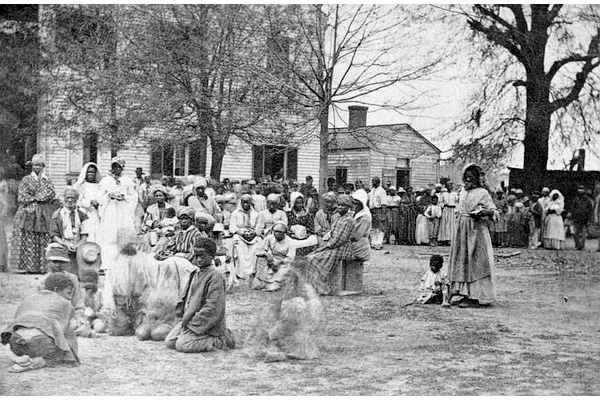About Publications Library Archives
cthl.org

Preserving American Heritage & History

Preserving American Heritage & History


Author: James E. Yeatman
Date:1863
Annotation:
In a letter to President Lincoln, aid workers offer a graphic portrait of the plight of wartime refugees.
Document:
The undersigned, members of the Western Sanitary Commission, most respectfully represent, that the condition of the Freed Negroes in the Mississippi Valley is daily becoming worse, and [that there are] not less than fifty thousand, chiefly women and children, now within our lines, between Cairo [Illinois] and New Orleans, for whom no adequate provision has been made. The majority of them have no shelter but what they call “brush tents,” fit for nothing but to protect them from night dews. They are very poorly clad–many of them half naked–and almost destitute of beds and bedding–thousands of them sleeping on the bare ground. The Government supplies them with rations, but many unavoidable delays arise in the distribution so that frequent instances of great destitution occur. The army rations (beef and crackers) are also a kind of diet they are not used to; they have no facilities of cooking, and are almost ignorant of the use of wheat flour; and even when provisions in abundance are supplied, they are so spoiled in cooking as to be neither eatable nor wholesome. Add to these difficulties, the helplessness and improvidence of those who have always been slaves, together with their forlorn and jaded condition when they reach our lines, and we can easily account for the fact that sickness and death prevail to a fearful extent. No language can describe the suffering, destitution and neglect which prevail in some of their “camps.” The sick and dying are left uncared for, in many instances, and the dead unburied. It would seem, now, that one-half are doomed to die in the process of freeing the rest….
We now respectfully ask permission and authority to extend our labors to the suffering freed people of the South-West and South. If you will give us your endorsement in the undertaking before the people, we think we can raise large sums of money, and accomplish great good. Nor would it be only a work of philanthropy, but equally of patriotism, for it would remove an increasing reproach against the Union cause, and by lessening the difficulties of emancipation, would materially aid in crushing the rebellion. At present, hundreds of the blacks would gladly return to slavery, to avoid the hardships of freedom; and if this feeling increases and extends itself among them, all the difficulties of the situation will be increased; while, at the same time, a most effective argument is given to the disloyal against our cause.
Source: Gilder Lehrman Institute
Additional information: James E. Yeatman et al., Western Sanitary Commission to President Lincoln